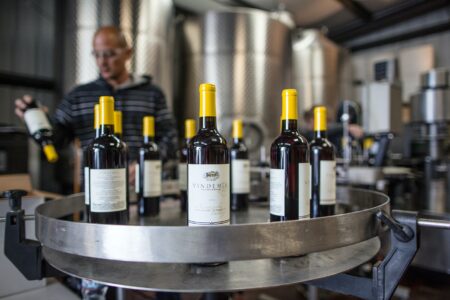Dr Narelle Tunstall
Managing Editor, Graduate Research Impact
ARC ITTCs… if you’re not familiar with the acronym, I’m talking about Australian Research Council Industrial Transformation Training Centres.
While it doesn’t quite roll off the tongue, the premise of these Centres is much simpler than the name – getting graduate researchers working on research projects directly with the industries that need highly skilled research graduates. Win-win, you might say.
So, what exactly is an ITTC?
The ITTC funding program
As part of the Australian Research Council’s broader Linkage Program that promotes research partnerships between university researchers and business, industry, or community organisations, the Industrial Transformation Training Centre (ITTC) scheme was established as part of the Industrial Transformation Research Program to drive growth, productivity and competitiveness of priority industries.
ITTCs are usually collaborations across multiple Australian Universities in partnership with a number of ‘Partner Organisations’ including both SMEs and larger companies. The key differentiator in this research funding scheme, however, is its aim to foster opportunities for Higher Degree by Research (HDR) candidates to pursue innovative, and industry relevant, research training.
The idea is to train researchers for ‘priority’ research industries that are vital to Australia’s future – advanced manufacturing, the MedTech Pharma sector, cybersecurity, to name a few. It’s an idea that’s not only good for industries needing highly skilled workers, but for PhD graduates looking for an advantage in their future careers.
As part of each Centre’s research funding agreement, ITTCs are required to provide a variety of specialised research training opportunities for the HDRs involved, but specifically ITTC students must complete a placement (at least 12-months for PhDs) with one of the Centre’s industry partners. That is, in the partner organisation’s workplace (not within the university sector), to gain experience in industry environments – and all the transferrable skills that come with it.
Since the scheme’s first round in 2013, a total of 57 ARC Industrial Transformation Training Centres have now been awarded funding offering hundreds of HDRs opportunities to conduct research and gain valuable skills and experience across diverse industries, while solving industry ‘problems’.
Supporting industry engagement, and graduate outcomes, across diverse industries
While many of the early funding rounds saw a focus on Food and Agribusiness, Advanced Manufacturing, and Medical Technologies and Pharmaceuticals, there’s been much more diversity in recent rounds. The eight most recent Centres announced in July this year provide insights into the variety of complex research problems that will be addressed with the industries engaged, over the Centres’ terms. The Centres funded in 2021 are:
- ARC Training Centre for Accelerated Future Crop Development
- ARC Training Centre for Behavioural Insights for Technology Adoption
- ARC Training Centre in Bioplastics and Biocomposites
- ARC Training Centre in Energy Technologies for Future Grids
- ARC Training Centre for Facilitated Advancement of Australia’s Bioactives
- ARC Training Centre for Healing Country
- ARC Training Centre for Next-Gen Technologies in Biomedical Analysis
- ARC Training Centre for Optimal Ageing
Even from the headline, they sound fascinating! But while these Centre’s are yet to be formally established, what about the Centre’s that are in full swing, or already complete… have they enhanced industry engagement? Are they supporting HDR outcomes? Are ITTCs doing what they were designed to do?
The ARC Training Centre for Innovative Wine Production
One of the very first ITTCs, the Training Centre for Innovative Wine Production (TC-IWP) is certainly a success story and not just because it’s about producing wine!
The TC-IWP was initially funded for three years in 2013 (which was the length of ITTCs in the first rounds, the scheme was later extended to up to 5 years). This Training Centre has been so successful, providing their partners with a competitive advantage through innovations and new intellectual property, that the team bid for and was awarded another round of funding for a follow-up Centre in 2017.
 The first Centre’s key objective was to transform the industry by developing an integrated, whole-of-production chain approach to manage flavour and alcohol content in Australian wine production. They did this through research aims targeted to four themes: at the vineyard, at the winery, post fermentation, and in the market. This research was done while training researchers in the broad field of grape and wine science enabling them to develop excellent working relationships with industry and contribute to the industry’s success beyond their projects.
The first Centre’s key objective was to transform the industry by developing an integrated, whole-of-production chain approach to manage flavour and alcohol content in Australian wine production. They did this through research aims targeted to four themes: at the vineyard, at the winery, post fermentation, and in the market. This research was done while training researchers in the broad field of grape and wine science enabling them to develop excellent working relationships with industry and contribute to the industry’s success beyond their projects.
The details in the history of their first Centre 2014-17 demonstrates a range of achievements, both in terms of multidisciplinary research project outcomes (how to make lower alcohol wine by harvest and blending regimes, understanding consumer perception of lower alcohol wines) but also on an individual level for the graduates. While some graduates have stayed in academia – many on industry-engaged research programs, others have moved into industry roles with the Centre’s partners, into government or biotech, and one student has started their own (wine-related) business.
So that’s a tick for both industry and graduate outcomes and continued engagement. How does this translate in a completely different industry?
The Research Training Centre for Naval Design and Manufacturing
 Officially launched in 2014, properly underway in 2015 and recently wrapped up in 2020, the Research Training Centre for Naval Design and Manufacturing (RTCNDM) had the aim to transform Australia’s naval manufacturing industry.
Officially launched in 2014, properly underway in 2015 and recently wrapped up in 2020, the Research Training Centre for Naval Design and Manufacturing (RTCNDM) had the aim to transform Australia’s naval manufacturing industry.
Given the Australian Federal Government’s transformation in the Defence agenda this Centre aimed to train a new cohort of industry-focused, high-level and broadly skilled engineers and engineering researchers for the shipbuilding industry. The Centre’s research looked at solving key problems restricting the efficient design, construction and sustainment of naval platforms but was also interested in creating a new network of engineering researchers across industry, universities and government to enable the Australian naval manufacturing industry to more rapidly evolve and innovate.
In total, 9 PhD programs and 4 integrated Postdoctoral programs have been completed through this Centre. The completed programs include outcomes addressing problems such as corrosion of marine grade aluminium and the effect of multiple repairs in steel on mechanical properties that all have impacts on major Defence SEA projects.
For each of these programs the students had internships in industry, and each has resulted in employment. (No info on where the employment is, so maybe that’s a defence secret!).
I joke, but secrecy is actually a thing when you’re working with industry…
Success in many ways, including silently
While I’ve only provided two very brief examples of ITTC success stories, I could go on (and I might in subsequent blog posts!).
But there’s another thing that I want to highlight in this post if we’re to fully consider the success of gradute research enhancing industry engagement.
And that’s the stories we’re not allowed to tell.
From my own experience as an ITTC manager in the Medical Technologies and Pharmaceutical industry I know there’s so many more stories’ – whether from ITTCs or other industry engaged research projects – that Universities simply can’t talk about. Legally.
In many cases researchers (students and supervisors alike) are held to strict confidentiality agreements, precisely because the research being conducted is so cutting edge and important to the industry partners.
The ITTC Voldemort – the Centre which shall not be named!
One ITTC that I know of through my network of national Centre Manager colleagues is a Centre that has had a focus on training Masters students (rather than PhDs). The industry partners for this Centre were more interested in the shorter timeframes of a Masters research project. Something that has also worked in the favour of the graduates involved.
This Centre has, to date, graduated four Masters by Research students. Since completing their degrees in collaboration with industry, all four graduates have since been offered jobs by the industry partners who they were placed with (and only one turned the job down because they decided to continue to a PhD). Many of the industry partners were so impressed with the program, both the research outcomes and the student capabilities, that they are ready to take on more students. The biggest hurdle has been finding more students!
However, while this Centre would love to shout their success stories from the roof tops, it’s simply not good business.
In industries where industrial espionage is worse than a bad movie plot, partners don’t want to tell their research impact stories or even pared back student success stories as they can’t risk their competitors knowing anything about their current research directions. Mentioning details of the research project might give away their next big innovation! Industry partners don’t want to talk about projects for fear of being scooped and losing their competitive edge.
The good news is, by keeping these secrets, often the partners will come back for more.
The ITTCs tell a pretty compelling story. By supporting the training of graduates to help them deliver useful research outcomes to industry partners, industires will continue to engage with Universities. And graduates build networks to find rewarding employment.
That’s definitely win-win.
Photos by Vindemia Winery on Unsplash and Stiven Sanchez on Unsplash

